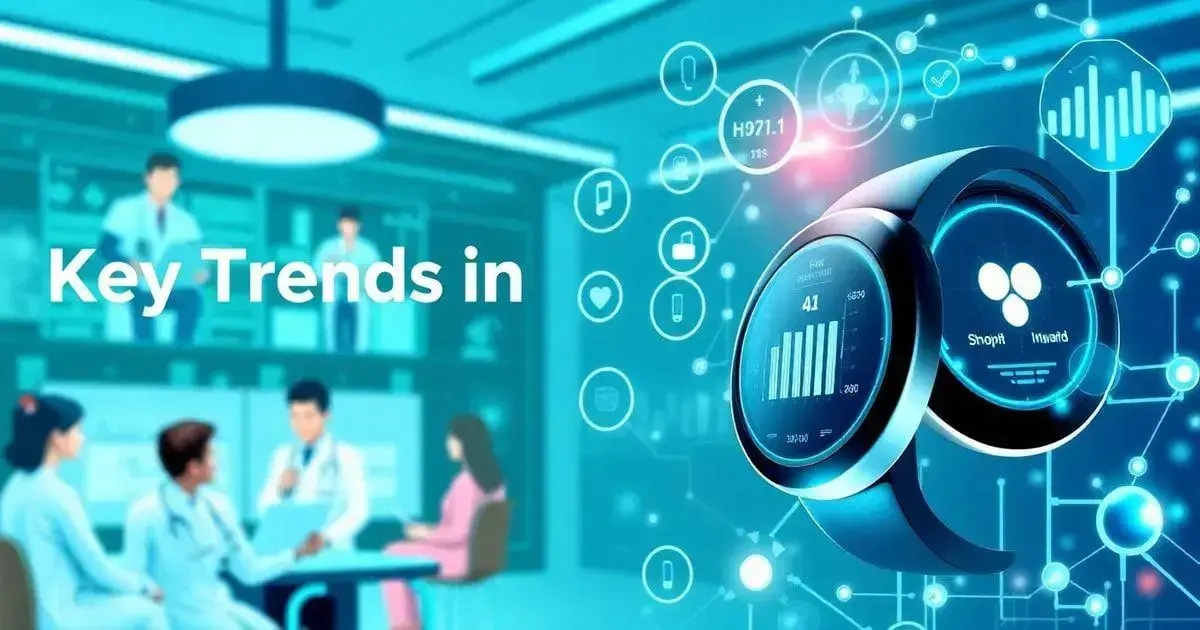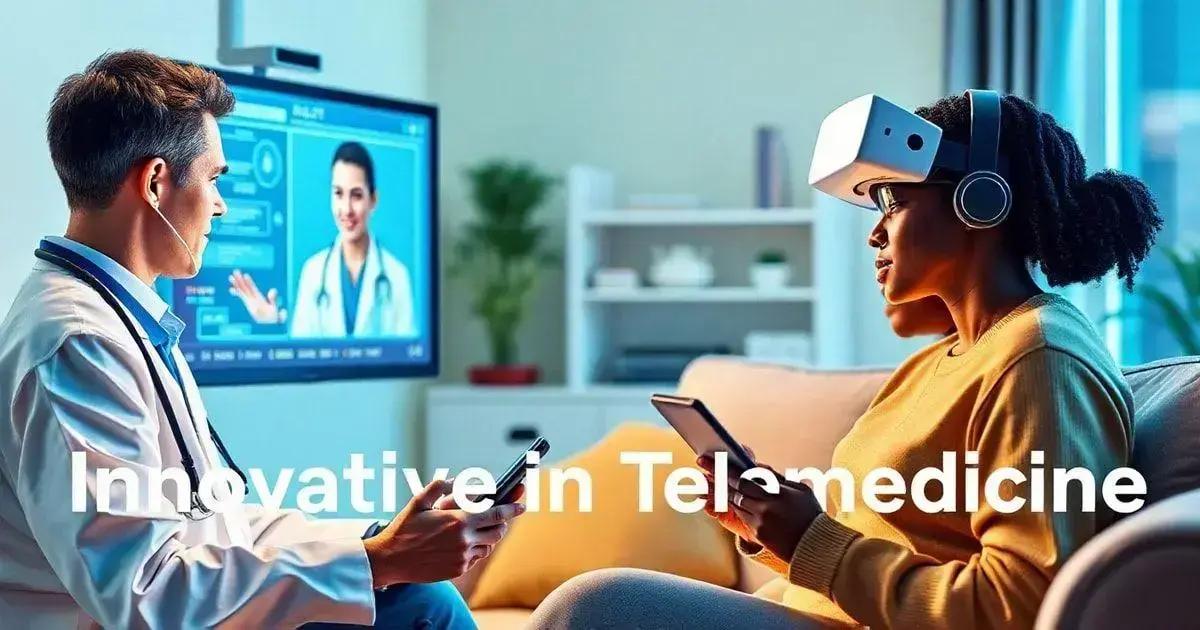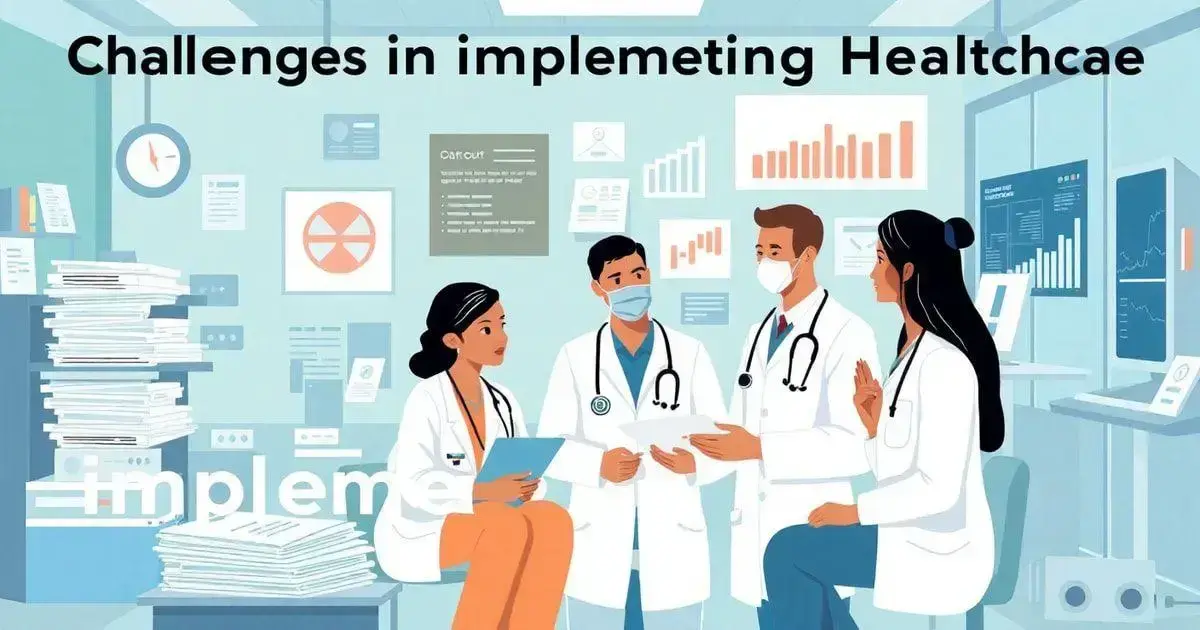Healthcare innovation is revolutionizing the medical field, enhancing how we approach patient care and treatment methodologies.
As new technologies and practices emerge, the potential for improving healthcare services expands remarkably.
The Importance of Healthcare Innovation
The importance of healthcare innovation cannot be overstated. It plays a crucial role in improving patient outcomes and optimising health systems. Advancements in technology, such as electronic health records and telehealth services, ensure that patients receive timely and effective care.
Moreover, innovative treatment methods allow for personalised medicine approaches, catering to individual patient needs.
Healthcare innovation also drives efficiency in service delivery. By leveraging automation and data analytics, healthcare providers can reduce wait times and streamline processes. This enhances the patient experience and allows healthcare professionals to focus more on direct patient care.
Embracing healthcare innovation leads to a better healthcare system that is responsive to the needs of patients and providers alike. The continual evolution of medical technologies ensures that the future of healthcare remains bright and filled with opportunities for improvement.
Key Trends in Healthcare Technology

Key trends in healthcare technology are shaping the future of medicine. One significant trend is the rise of telemedicine, which allows patients to receive care from the comfort of their homes. This improves access to healthcare, especially for those in remote areas.
Another trend is the integration of wearables and mobile health apps that empower patients to monitor their health metrics actively. Artificial Intelligence is also playing a vital role by analysing vast amounts of data to identify patterns and improve diagnostics and treatment plans. These advancements lead to more personalised care and better patient outcomes.
Moreover, interoperability between different healthcare systems is becoming essential, ensuring that patient information is readily available across various platforms. Staying updated with these trends is crucial for healthcare professionals to provide the best possible care to their patients.
Impact of Digital Health on Patient Care
The impact of digital health on patient care is profound and far-reaching. With the advent of technologies such as telehealth, patients can now receive healthcare services remotely, making it easier for those in isolated areas to access medical advice. This brings down barriers related to distance and mobility.
Furthermore, digital health solutions, like mobile health apps, empower patients to manage their health actively by tracking symptoms and medication.
Key aspects include electronic health records (EHR) and a patient-centric approach.
This ensures that patient data is available to healthcare providers in real-time, enhancing collaboration among medical professionals and allowing for more informed decision-making. Overall, digital health fosters a more patient-centric approach, improving engagement and satisfaction.
Innovative Practices in Telemedicine

Innovative practices in telemedicine have transformed how healthcare is delivered to patients. One such practice is virtual consultations, which allow patients to connect with healthcare providers from their homes. This method not only saves time but also reduces the need for travel, making healthcare more accessible.
Another innovation is remote monitoring, where devices track a patient’s health metrics in real-time, providing crucial data to doctors. With mobile applications, patients can easily book appointments, access medical records, and receive reminders for medications.
These advancements enhance patient engagement and adherence to treatment plans. Overall, telemedicine serves as a vital tool in modern healthcare, especially in times of crisis, ensuring patients continue to receive care wherever they are.
The Role of Artificial Intelligence in Healthcare
The role of Artificial Intelligence (AI) in healthcare is becoming increasingly important. AI technologies enable healthcare providers to improve patient outcomes and streamline operations.
For instance, AI can assist in diagnostics by analysing medical images and lab results quickly and accurately, leading to faster treatment decisions.
In addition, predictive analytics powered by AI helps identify patients at risk of developing certain conditions, allowing for preventive measures to be taken as early as possible.
Moreover, AI-driven tools can enhance operational efficiency by automating administrative tasks like scheduling and billing. This allows healthcare professionals to focus more on patient care.
Overall, the integration of AI in healthcare signifies a shift towards more efficient and effective patient management.
Challenges in Implementing Healthcare Innovations

Challenges in implementing healthcare innovations can arise from various factors.
One major challenge is resistance to change among healthcare professionals. Many are accustomed to traditional methods and may be hesitant to adopt new technologies.
Additionally, there can be financial constraints, as healthcare organisations often have limited budgets for investing in innovative solutions.
Another issue is regulatory hurdles, as new technologies must comply with strict health regulations, which can slow down their implementation.
There is also a risk of data security breaches, making organisations cautious about fully adopting digital solutions.
Education and training are essential to ensure staff are confident and competent in using new technologies.
Addressing these challenges is critical for successful innovation in healthcare.
Future Directions for Healthcare Innovation
Future directions for healthcare innovation focus on several key areas. One important aspect is the integration of Artificial Intelligence (AI) into everyday healthcare practices. AI can enhance decision-making and predictive analytics, helping doctors to provide better care.
Another direction is the expansion of telehealth services, making healthcare more accessible to patients in remote areas.
Additionally, improving patient engagement through mobile apps and online platforms allows individuals to take charge of their health like never before.
Cybersecurity will also be a significant focus, ensuring that patient data remains secure as more health services move online.
Furthermore, collaborative care models that involve multiple healthcare providers will lead to more comprehensive patient care.
As innovation continues, the emphasis will be on creating a more personalised and efficient healthcare system that caters to the needs of patients. These future directions promise to revolutionise how we experience healthcare today.
Case Studies: Successful Innovations in Healthcare

The case studies illustrate how embracing innovation can lead to remarkable improvements in healthcare delivery and patient experiences.
One notable example is the telemedicine platform, which allowed patients to consult with doctors via video calls. This innovation resulted in a reduction in wait times and increased patient satisfaction.
Another significant advancement is the use of AI algorithms that analyze medical images to enhance the accuracy of diagnoses. This has led to a decrease in misdiagnoses and improved treatment outcomes.
Additionally, patient engagement apps have encouraged patients to track their health and communicate with their care teams, resulting in better adherence to treatment plans.
Harnessing Healthcare Innovations for a Healthier Future
The innovations in healthcare are paving the way for a brighter future. Embracing technologies such as telemedicine, Artificial Intelligence, and patient engagement tools significantly improve patient care and operational efficiency.
As we see from various case studies, successful implementations have led to enhanced patient satisfaction, accurate diagnoses, and overall better health outcomes.
To maximise the benefits of these innovations, healthcare providers must remain open to change, invest in training, and prioritise cybersecurity.
The future of healthcare is promising, and we must utilise these advancements to foster a healthier society.
